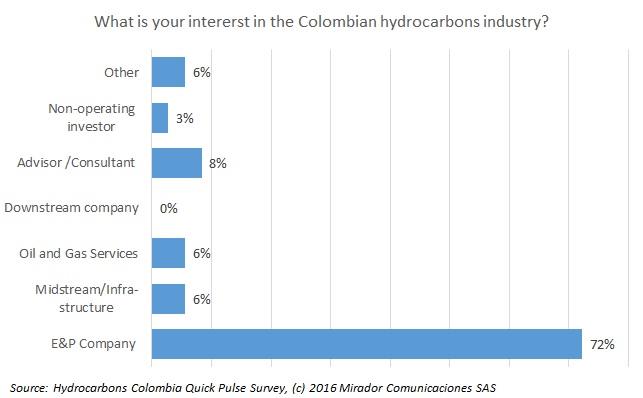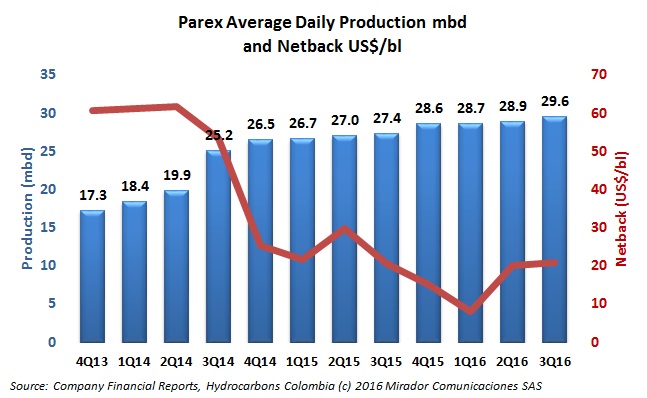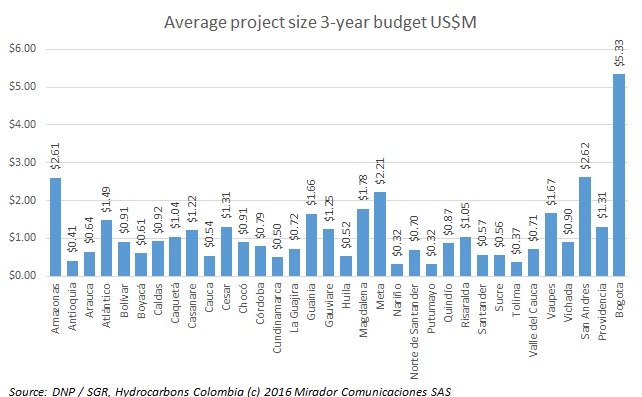The USO accused Ecopetrol (NYSE:EC) of relying on the police to repress union members and force it to accept management’s agenda to leave the current collective bargaining agreement without changes.

This week we temporarily merge our ‘From our analyst’s desk’ and ‘What we think’ features to analyze what you think.
Canacol Energy (TSX:CNE) has announced a new agreement with gas distributor Promigas to expand its existing gas distribution network and add 100mmcfd to its current agreement.

Parex Resources (TSX:PXT) continued with its steady production growth in the third quarter of 2016 and was even able to post its first profit since the fall in oil prices at the end of 2014.
The Colombian Chamber of Oil Goods and Services (Campetrol) wants the government to create a special “single window” for the oil industry that would handle all of the processes and requests associated with the licensing and socialization process.
The 2017-18 budget for the General Royalty System has passed through its first debate in the joint Senate and Lower House economic commissions, but the debate did uncover many of the complaints against the system and its results.
Controversy over ConocoPhillips (NYSE:COP) project in Cesár has brought unconventional technologies back into the press limelight and the balance has not been positive.
The government has compiled proposals from the ‘no’ proponents into 57 different items and is now discussing them with the Farc. Head negotiator Humberto de la Calle said that the discussion in Havana has been difficult, but denied rumors that the Farc had left the table.
Ecopetrol (NYSE:EC) has handed out scholarships for rural residents to take on university studies, and distinguished 16 national initiatives with its innovation awards for 2016. These and other Corporate Social Responsibility (CSR) stories in our periodic summary.

During the recent debates on the 2017-2018 royalty budget, Centro Democratico Senators Ivan Duque and Oscar Darío Pérez complained that most projects were subscale and so lacked impact. With the data we collected for our recent long article on fairness, we had the information necessary to look at the question.